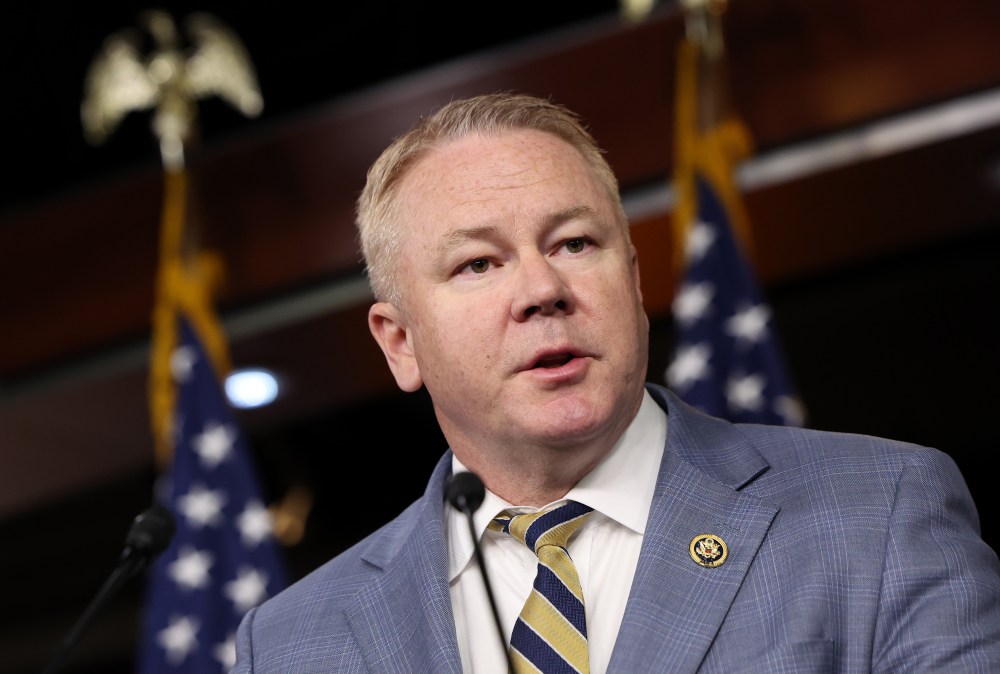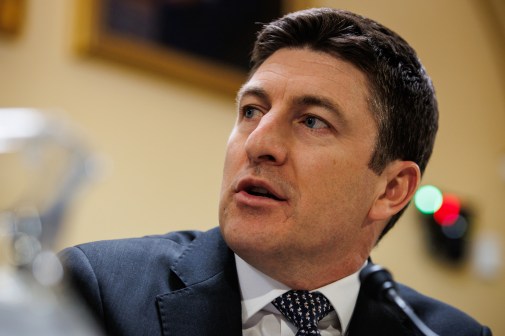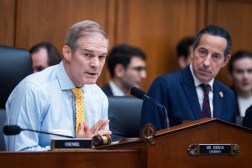House passes bill to limit personal data purchases by law enforcement, intelligence agencies

The House passed the “Fourth Amendment Is Not For Sale Act” on Wednesday, buoying the spirits of digital privacy advocates at the same time the Senate is gearing up for a fight over a broader extension of Section 702 of the Foreign Intelligence Surveillance Act.
The bill, introduced by Rep. Warren Davidson, R-Ohio, and a group of seven bipartisan co-sponsors, passed 219-199. It would prohibit law enforcement and intelligence agencies from purchasing personal information about customers or subscribers of electronic and remote computing service providers — such as social media, cell phone, email and cloud computing companies — without first obtaining a court order.
The measure saw a coalition of 123 Republicans join forces with 93 Democrats, including both House Speaker Mike Johnson, R-La., and Minority Leader Hakeem Jeffries, D-N.Y., to push the measure through to the Senate.
Privacy advocates cheered the bill’s passage, after arguing that the government’s purchase of large quantities of personal information via commercial companies and third-party data collectors represented an end-around the U.S. Constitution’s Fourth Amendment.
“The bipartisan passage of this bill is a flashing warning sign to the government that if it wants our data, it must get a warrant,” Kia Hamadanchy, senior federal policy counsel at the American Civil Liberties Union, said in a statement. “We hope this vote puts a fire under the Senate to protect their constituents and rein in the government’s warrantless surveillance of Americans, once and for all.”
An earlier House Judiciary Committee-approved version of a Section 702 reauthorization measure included the data broker legislation in its text. Johnson opted to advance a House Intelligence Committee-approved version of a Section 702 reauthorization bill that excluded it, and made it so the “Fourth Amendment is Not for Sale Act” could not be attached to the legislation by amendment on the floor. When lawmakers revolted against the 702 bill, Johnson was able to restart the debate with a promise that the “Fourth Amendment is Not for Sale Act” would get a standalone floor vote.
Sen. Ron Wyden, D-Ore., who has sponsored a companion bill in the Senate, immediately urged his colleagues to swiftly pass the measure.
“This is a huge win for privacy. Now it’s time for the Senate to follow suit,” Wyden said on X.
Despite the revelry, the bill faces an uncertain future in the chamber and with a White House that has strenuously objected to the legislation.
In a call with reporters this week, a senior administration official called the bill “unworkable” and “devastating” to homeland security. Among the criticisms were that the definition of third parties was overly broad, that agencies wouldn’t be able to confirm whether covered data was in a purchased dataset before buying it, and that it would inhibit the government’s ability to “detect and defeat adversary cyberattacks” and takedown malicious botnets.
“In practice, these standards make it impossible for the [intelligence community] or law enforcement to acquire a whole host of readily available information that they currently rely on,” the official said.
Tim Starks contributed to this article.






